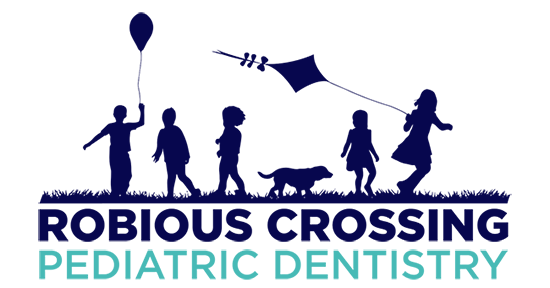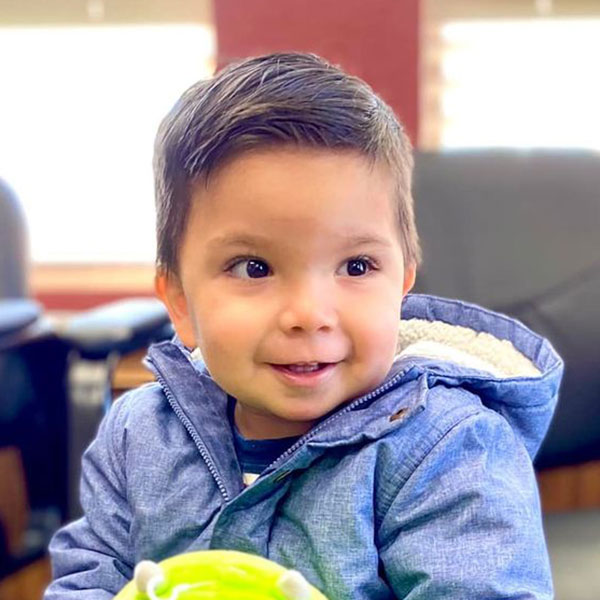Care for Primary Teeth in Midlothian, VA
Typically, a baby’s first primary teeth begin to erupt between six to ten months of age, usually appearing one at a time. After the initial few, new teeth continue to emerge every few months. Seeing your little one grow and change is both a joy and a challenge. It is amazing to see a baby’s smile take shape, but teething comes with pain and fussiness. You can find some helpful tips from our team to manage your child’s teething pain and fussiness here.
At Robious Crossing Pediatric Dentistry, we are your partners in caring for that little smile. Informing parents about teething, tooth development timelines, and oral care is a part of our job we thoroughly enjoy!
When Baby Teeth Arrive
Tooth development in babies and children follows a predictable schedule. Here’s what you can expect, give or take a few months.
- Bottom central incisors arrive at 6-10 months
- Upper central incisors arrive at 8-12 months
- Upper lateral incisors arrive at 9-13 months
- Lower first molars arrive at 10-16 months
- Upper canines (cuspids) arrive at 16-22 months
- Lower canines (cuspids) arrive at 17-23 months
- First and second upper and lower molars arrive at 14-33 months
DID YOU KNOW?
One in 3500 babies are born with one or more teeth. These “natal” teeth are usually malformed, so to avoid future irritation or injury, they’re removed before the infant is sent home from the hospital.
Caring for Baby’s New Teeth
Regularly bathing your infant is part of good hygiene; so is cleaning their mouth after feedings. Use a soft, moist, terry cloth towel to gently wipe the front and back of your infant’s gums after they eat.
When the first tooth erupts, probably the bottom central incisor, clean your baby’s tooth with a small, soft, baby toothbrush and a pea-sized amount of non-fluoridated toothpaste. As additional primary teeth show up, you can begin flossing these teeth, as well.
Bring your child in for a checkup before their first birthday, after the arrival of the first tooth. Our children’s dentist will chat with you about oral care and development. We will also assess the inside of the baby’s mouth to evaluate the primary teeth and structural oral development.
Caring for Your Child’s Primary Teeth
At age three, your toddler can begin using fluoridated toothpaste if they spit it out rather than swallowing it. Preventive dental care at home and in our Midlothian office will significantly reduce the potential for both cavities and gum disease.
Your child needs to visit us twice a year, once every six months. During these visits, our children’s dentist will conduct a thorough oral health exam. At age four or five, your little one can begin having professional dental cleanings as well. We strongly recommend allowing us to apply supplemental fluoride and dental sealants to further reduce the risk of tooth decay in primary teeth.
At home, brush your child’s teeth until age five or six, then allow the child to perform the task, but closely monitor their technique and offer tips. The basic steps for effective oral homecare are:
- Brush teeth after breakfast
- Brush and floss teeth after dinner
- Do not provide a sippy cup in bed, unless it contains only water
- Restrict the amount of sugars and starches in your child’s diet
- Bring your kiddo in every six months for a checkup and cleaning
- Call us if you notice any abnormalities in your child’s mouth or if they complain of a toothache
Keep Your Child’s Smile Healthy
Our entire office is designed to cater to kiddos’ needs, from the bright and playful decor to the instruments and technology we employ. We get eye-to-eye with young patients and are experienced in helping them feel comfortable, safe, and positive during dental visits. Contact our office today to schedule an appointment for your child to keep their smile healthy for a lifetime!



